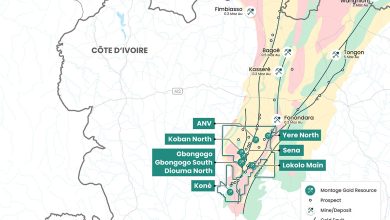Sandvik branches key to supporting crushing and screening customers

In an environment where crushing and screening operations attach great importance to equipment uptime and productivity, an extensive footprint of 11 Sandvik entities in Africa enables Sandvik Rock Processing to respond to customer service needs timeously.
Nils-Peter Ahlqvist, Sales Support Manager Africa & Latin America – Crushing Division at Sandvik Rock Processing, says that in the midst of the current global supply chain challenges, shipping equipment and parts into the African continent has become a major challenge.
“Sandvik’s extensive footprint of entities across the continent gives us the edge to get the better of the prevailing logistical challenges. In southern Africa alone, we have 11 entities which act as logistics hubs that allow us to efficiently distribute parts throughout the region,” explains Ahlqvist.
Aftermarket support
Aftermarket support has always been the cornerstone of the company’s success. During Sandvik’s 76-year history in Africa, the company has become well-acquainted with the challenges facing its mining and quarrying customers and understands the important role that reliable aftermarket support can play in optimising equipment uptime and ensuring successful customer operations.
“The importance of local in-country aftermarket support infrastructure cannot be reiterated enough,” says Ahlqvist. “We rely on our widespread touchpoints in Africa to respond to service requirements timeously and to support customers with the expertise needed to achieve their production targets consistently and with the highest overall equipment efficiency. The 11 Sandvik entities are placed in strategic areas which are close to all the major mining and quarrying hubs.”
Having entities in the various parts of the region, he adds, speaks to Sandvik’s localisation strategy which seeks to give back to respective countries in which the company operates and Sandvik Rock Processing is continuing to invest in local capabilities and competence in the countries in which they operate. “To a large degree, these local entities employ local people and play a part in skills development, thus contributing to the growth of local economies,” concludes Ahlqvist.






